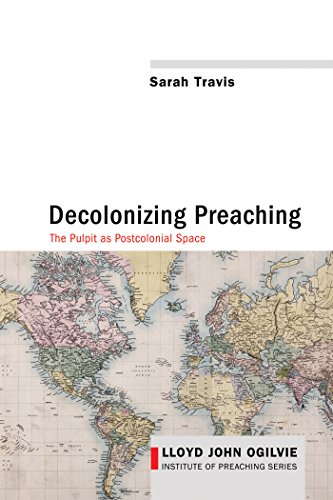Decolonizing Preaching
Decolonizing Preaching The Pulpit as Postcolonial Space (Lloyd John Ogilvie Institute of Preaching Series Book 6)
Sarah Travis
BOOK REVIEW

In Decolonizing Preaching: The Pulpit as Postcolonial Space, Sarah Travis embarks on a profound exploration of the intersections between postcolonial theory and religious practice. Through her insightful analysis, she doesn't just unearth the colonial legacies embedded within traditional preaching; she challenges preachers to reshape their narratives and reimagine their spaces. This is not merely a book but a clarion call for a transformative rethinking of preaching in a world aching for justice and equality.
Travis positions the pulpit not as a static entity, but as a dynamic arena where colonial histories dance with contemporary realities. By unpacking how colonialism has influenced the way we communicate faith, she implores us to consider: who is truly being served from the pulpit? The cultural hegemony that has long dictated Christian discourse must be dismantled to allow diverse voices to flourish. This is a heart-wrenching invitation to reflect on the very foundations of our sermons and the implications they have on marginalized communities.
The pulse of this book beats brightest in its ability to encapsulate the voices of the oppressed, invoking an emotional urgency for readers to recognize the necessity of decolonization in spiritual settings. The reader is invited to witness the boldness of reinterpreted faith practices-practices that illuminate paths toward reconciliation and inclusivity. By integrating postcolonial insights, Travis doesn't just scratch the surface; she excavates the very core of what it means to preach in a world fraught with inequity.
Reception of Decolonizing Preaching has sparked vigorous conversations within religious circles. While many praise Travis for her audacity and clarity, some critics argue that her approach may alienate traditionalists who see no need for change. This tension reflects a broader societal struggle to balance heritage with progress, illustrating that Travis's work might not just challenge religious norms but societal ones as well. The emotional feedback from readers-manifesting through tears of recognition or anger at past injustices-demonstrates the power of her message.
Sarah Travis, through her academic lens shaped by both personal and broader historical contexts, has emerged as a transformative voice in theological discourse. She invites you to dwell in the discomfort of unsettling truths, pushing you to confront the systemic injustices deeply rooted in spiritual practices. As you navigate through her compelling prose, you're not just reading; you're engaging in a dialogue that could radically shift your understanding of faith and community.
This book is more than an academic piece-it's a movement. It cries out for change, for a resurgence of voices that have been long silenced. As the world grapples with issues ranging from racial inequality to environmental crises, the need for decolonized preaching becomes a moral imperative. Let the pulpit become a space where all narratives can be voiced, where love transcends boundaries, and where justice is not just preached but actively pursued.
Decolonizing Preaching is your invitation to become part of a healing narrative, a testament to resilience. By reading this work, you are not only witnessing a transformative paradigm; you are being called to action, to reflect, and to create a legacy that champions inclusivity and justice. Don't miss the chance to engage with the profound possibilities this text unlocks. It's time to rethink who stands at the pulpit and the stories we choose to tell. ✨️
📖 Decolonizing Preaching: Decolonizing Preaching The Pulpit as Postcolonial Space (Lloyd John Ogilvie Institute of Preaching Series Book 6)
✍ by Sarah Travis
🧾 170 pages
2014
#decolonizing #preaching #decolonizing #preaching #pulpit #postcolonial #space #lloyd #john #ogilvie #institute #preaching #series #book #sarah #travis #SarahTravis